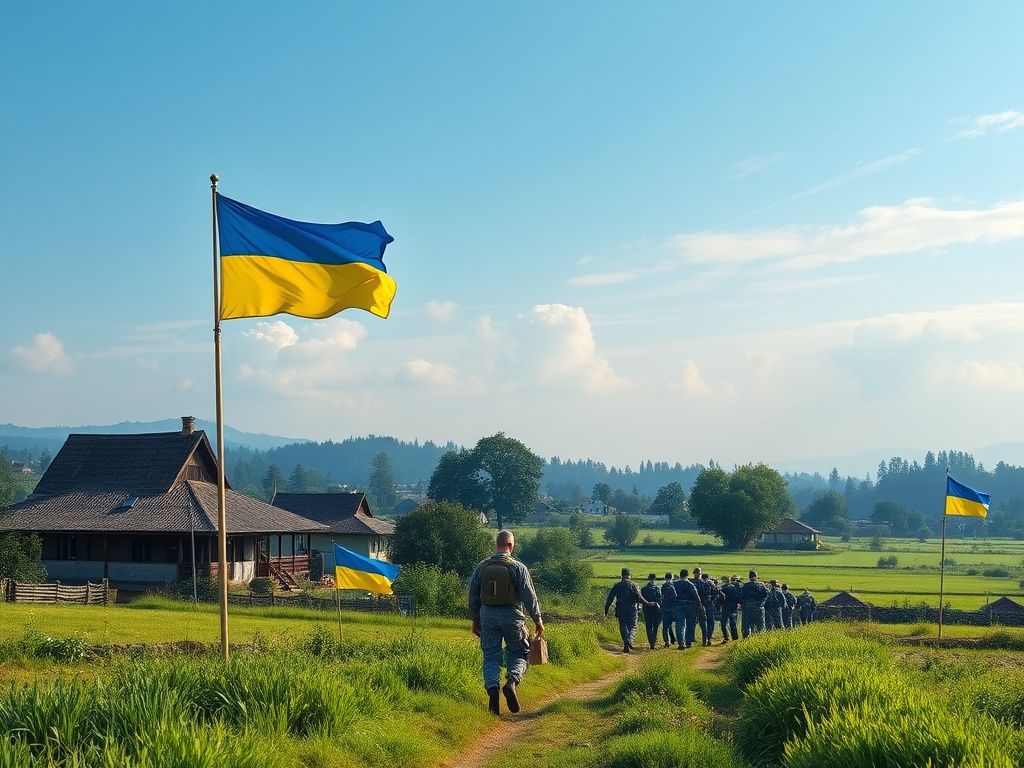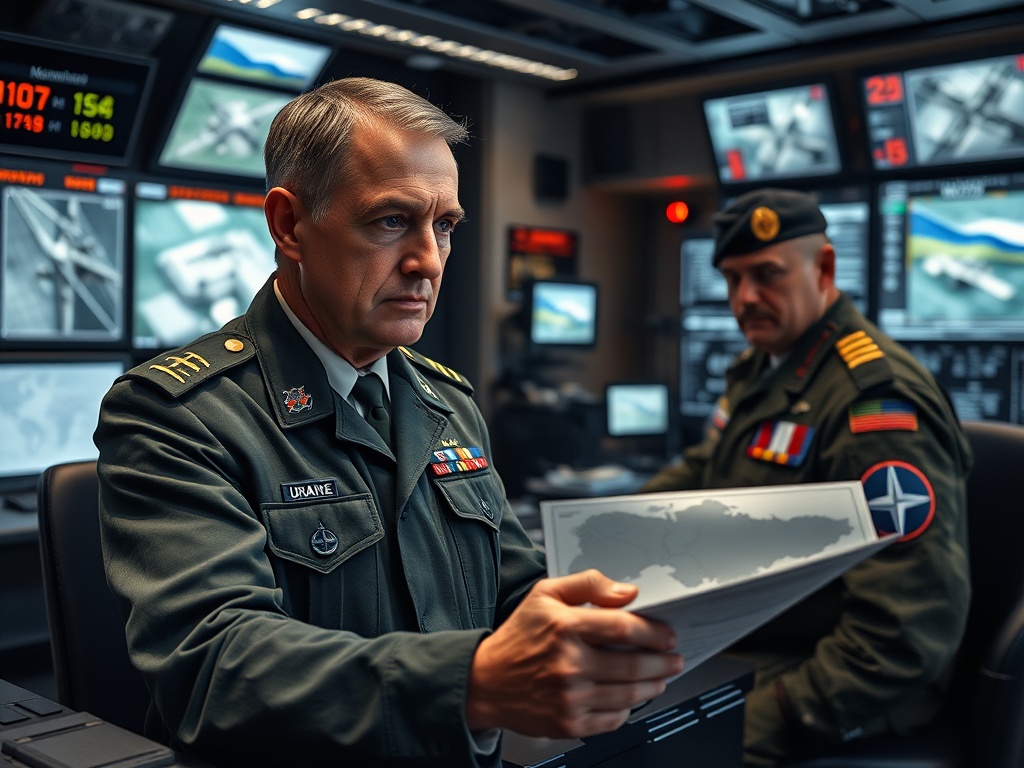Former Nato Commander’s Views on Peacekeeping Troops in Ukraine

A prominent former commander of NATO has expressed skepticism regarding the upcoming proposal by Sir Keir Starmer to deploy fewer than 30,000 European peacekeeping troops to Ukraine. General Sir Richard Shirreff contends that any peacekeeping mission would lack credibility unless Russia is decisively defeated first. He cautioned that allied nations must be prepared for “full-scale state-on-state warfare” should Russian forces launch an attack on them.
General Shirreff further remarked that Prime Minister Rishi Sunak risks being “laughed out of court” by Donald Trump during his visit to Washington next week unless he indicates a commitment to raise defense spending to at least 3 percent of GDP. The former Deputy Supreme Allied Commander Europe of NATO urged European nations to provide robust military support to Ukraine in order to defeat Vladimir Putin on the battlefield before any peacekeeping forces are sent.
He proposed the idea of conscripting around 30,000 British citizens annually to bolster the size of the British Army to 100,000, emphasizing the necessity of training Armed Forces reservists in preparation for potential worst-case scenarios. “Where are the air defense missiles defending our major cities—London, Manchester, Glasgow, Edinburgh, Cardiff, and Belfast?” Sir Richard questioned in an interview with The i Paper. “Where is the mobilization of our defense industries and the national economy to combat a war?”
He likened the current situation to the Munich Agreement of 1938, which he viewed as a betrayal of Czechoslovakia, yet it ultimately prompted the British government to initiate rearmament. “Munich 2025 could similarly betray Ukraine, but it should also serve as a wake-up call for Britain and NATO to prepare for war with Russia, as this is the only path to lasting peace,” he asserted.
General Shirreff raised concerns about Trump’s indications that he might withdraw US troops from the Baltic NATO states, suggesting that this could embolden Putin to escalate his military actions and potentially risk a Third World War. The Prime Minister is expected to reveal a blueprint, spearheaded by the UK and France, for a “reassurance force” comprising 30,000 soldiers during his meeting with Trump next week. However, Sir Richard argued that while the use of intelligence, surveillance, reconnaissance aircraft, drones, and satellites to monitor any border with Russia is a positive step, “a lot more” troops are necessary.
“The only guaranteed security for Ukraine is NATO membership,” he stated. “The next best assurance is a capable military force with a clear intent that any violation of a ceasefire would be met with a robust response.” He expressed doubt about the feasibility of effectively managing the situation with only 30,000 troops, urging a clear understanding of the task at hand. “We need to determine what is required to accomplish the mission instead of merely settling for the maximum we can provide,” he added. “Frankly, it doesn’t sound credible.”
Moreover, Pete Hegseth, the US Defense Secretary, has remarked that the primary responsibility for any peacekeeping operations would rest with European nations and Canada. General Shirreff warned that Trump’s actions are creating conditions conducive to a Russian victory in the ongoing conflict, thereby placing NATO in jeopardy.
This discussion coincides with Defence Secretary John Healey’s statement that any ceasefire in Ukraine must not be violated once again by a Russian re-invasion. “All discussions regarding a ceasefire force, whether termed implementation or reassurance, are moot unless we compel the Russians to accept it,” Sir Richard emphasized. “The first step is to determine how we can force Russia to acknowledge it—by defeating them in Ukraine or by aiding Ukraine in defeating them.” He concluded that the only path to long-term peace and security in Europe is for Russia to suffer significant setbacks in Ukraine, thereby realizing that it cannot fulfill its ambitions.
To support Ukraine effectively, General Shirreff called for long-range missiles with authorization to strike deep within Russian territory, substantial supplies of ammunition, air defense systems, tanks, armored infantry fighting vehicles, self-propelled artillery, along with drones and satellite surveillance capabilities.
In a related discussion on The Jeremy Vine Show, Labour MP Paulette Hamilton suggested that the UK needs to engage in “serious discussions surrounding conscription.” Representing Birmingham Erdington, she remarked, “Conscription is not something I would have considered until the current situation unfolded. However, it’s crucial that we start having serious conversations about it. Our borders are under threat, and we cannot afford to ignore the reality.”




